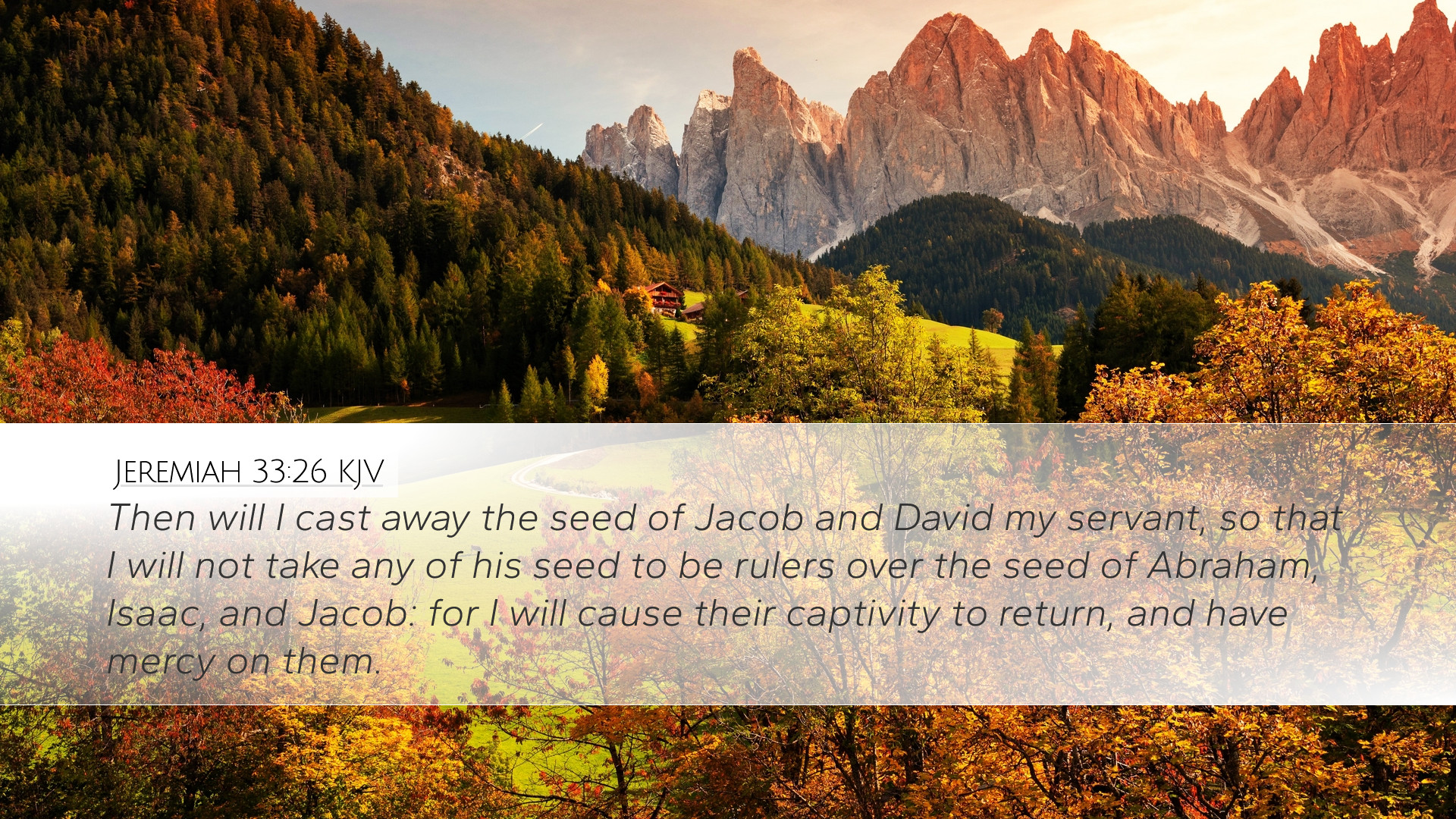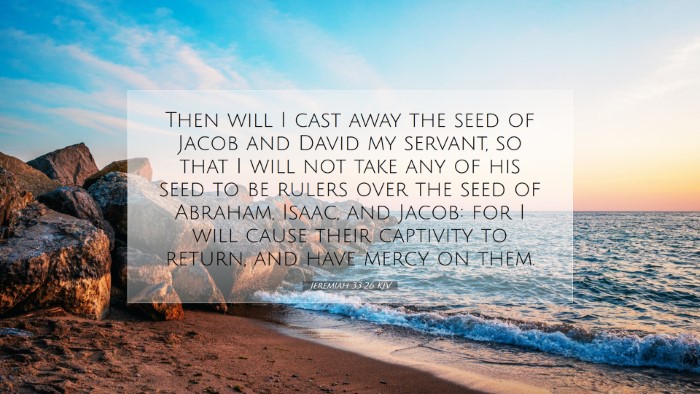Commentary on Jeremiah 33:26
In Jeremiah 33:26, the prophet communicates God's commitment to the people of Israel and Judah, emphasizing a promise that includes not only restoration but also the security of their future. This passage serves as a profound reminder of God's unwavering faithfulness to His covenant with His people.
Text of Jeremiah 33:26
"Then will I cast away the seed of Jacob, and David my servant, so that I will not take any of his seed to be rulers over the seed of Abraham, Isaac, and Jacob: for I will cause their captivity to return, and have mercy on them."
Contextual Analysis
This verse occurs within a broader context of hope and restoration in the Book of Jeremiah. Historically, Jeremiah proclaims these messages during a turbulent period in Judah's history, characterized by impending judgment due to sin and disobedience. Despite this, God reveals plans of restoration, leading the faithful remnant to both physical and spiritual revival.
Theological Insights
- God's Faithfulness: This passage underscores God's fidelity to His promises. As noted by Matthew Henry, God reassures His people that His covenant with them—rooted in the covenant made with David—remains intact despite their failures.
- The Importance of Lineage: The reference to the seed of Jacob and David signifies the centrality of lineage in God's redemptive plan. Albert Barnes points out that the preservation of David’s royal line is essential to understanding God's sovereign plan for the Messiah.
- Mercy and Restoration: The promise that He will have mercy and restore the captives reflects the nature of God's grace. Adam Clarke emphasizes that God's mercy is a constant theme throughout Scriptures, often prevailing over judgment.
Exegesis of Key Themes
1. Divine Assurance
In the assurance given through this promise, we find a divine guarantee of restoration. The phrase "I will cause their captivity to return" illustrates God's sovereign authority over Israel’s fate. This statement indicates not only a physical return but also a spiritual renewal, calling on God's people to trust in His ultimate plan.
2. Rulership Based on Divine Choice
When God states that He will not take any of the seed of David to rule over Jacob, it signifies a shift from human kingship to a divine rulership determined by God's will. Matthew Henry expounds on this by saying that the future leadership will be characterized by God's direct involvement, pointing ultimately to Christ, the King of Kings.
3. Hope Amidst Despair
This promise emerges amidst chaos and destruction, speaking to the hope that God offers even in desolation. The trajectory of despair can be reversed by divine intervention, as Albert Barnes emphasizes, showing that God can turn mourning into joyful celebration.
Practical Applications for Today's Readers
The passage conveys eternal truths relevant to pastors, students, and scholars alike:
- Encouragement in Ministry: Pastors, in particular, can draw strength from God's promise of restoration. In times of church struggles or personal crises, trusting in God's faithfulness assures leaders that their labor is not in vain.
- Understanding Grace: The assurance of mercy highlights the core message of grace, encouraging all believers to approach the throne of God boldly, seeking forgiveness and renewal.
- The Importance of Legacy: Understanding the significance of lineage in biblical history helps modern Christians appreciate the importance of spiritual heritage and the impact of faithful living in contemporary settings.
Conclusion
Jeremiah 33:26 encapsulates God’s unfailing commitment to His people. As we study this rich text, let it serve as a reminder that our God is one who restores, who chooses, and who acts in mercy toward His people across generations. As theologians and scholars, may we continue to explore these depths, appreciating the profound implications of such promises in our study and application of Scripture.


